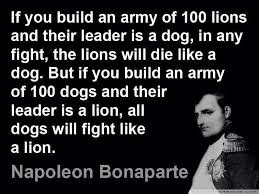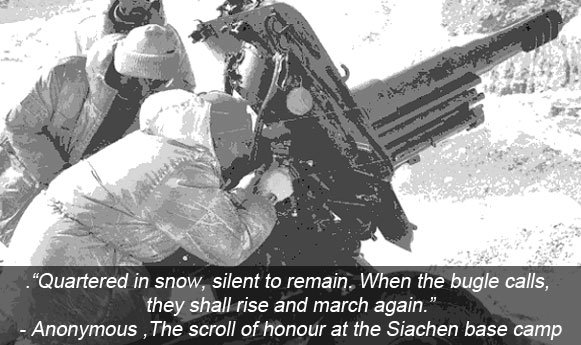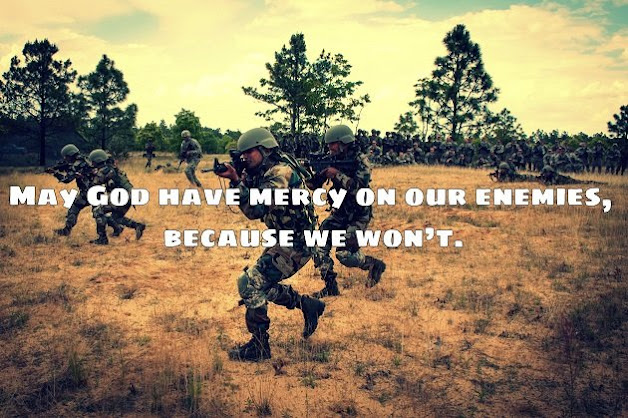
The collapse of the ANA, the hasty withdrawal of USA and the rapid gains of Taliban in Afghanistan have major lessons for military and political leadership. ANA lost it completely due to poor motivation and training. Its leadership was too political, corrupt, and unprofessional. Lesson: Nations cannot afford poorly trained and unprofessional Armed Forces dabbling in politics even if well equipped. The USA is facing yet another major international embarrassment. Its political and military leadership were on the same page at combat level but on vastly different pages at political level. USA is facing a political defeat rather than a military one. The criss-crossed lines between successive White House administrations, State Department, Pentagon, and CIA, led to gross inaccurate assessment about the enemy and ground situation. USA has been consistently blind to the fact that Pakistan was its real enemy while it was fighting the Taliban. Lesson: lack of realistic and balanced politico military equations and assessments will lead to defeat. The lightening takeover by the Taliban will stoke belief that ideologically motivated and politically driven forces can achieve victory by feeding off the enemy through guerrilla tactics. This is especially important. Our adversaries – Pakistan, China and separatists’ forces are ideologically driven. The undermining ideological influence and information warfare of radical Islam and hard-core revisionist communism makes one believe about their invincibility. More importantly both are aggressive and well equipped and trained to undertake full spectrum operations. Lesson: to defeat such formidable adversaries we need military leadership of the highest caliber to lead a professional armed force. A well trained professional Armed Force, with the correct political orientation and guidance can contend with any form of hybrid or conventional warfare.
Victory will revolve around a sound and competent military leadership based on merit and a politico military connect based on professional and constitutional principles. Both must synergize and put together a strong, well trained, well equipped, and motivated military. The issue assumes significance since our armed forces must face the entire spectrum – sub conventional, conventional, and nuclear options in one of the most complex environments. Further as India rises, the demands on the Indian Armed forces will increase. That is why we have embarked on a journey of modernization, expansion, jointness and atmanirbharta. Most importantly, when the chips are down, we must be able to fend for ourselves without expecting much from others. All this demands that it is the ‘best of the best’ which must lead the military of an emerging India.
The inclination of the government to promote Armed Forces officers to higher ranks and appointments on merit overlooking seniority must be examined in this context. Merit is an undeniable argument in the kaleidoscopic environment of multidomain warfare, where we are striving for transformation through integration and jointness. However, the issue is that we do not have a structure to ensure that the ‘best of the best’ come up to the top. Let me amplify. The issue is never that people of lesser merit should lead the armed forces. The issue is what constitutes merit amongst equals. Who and how is merit to be decided? In the absence of a well laid out government policy, the consensual convention which has evolved is that leaders are selected up to a level by merit. Thereafter since the inter-se difference in merit is assumed to be insignificant, seniority serves as a tie breaker. It enables status quo without rocking the boat. However, the question is: does it get the best man to the top? No. It does not. There are enough examples of that. However rather than looking back, let me examine the issue in a larger framework.

At the outset, the intent of the Government must be crystal clear. As it stands, there is adequate clamour in the environment on the politicization of the armed forces. If the whole idea is to choose a politically pliant military leader using the ‘merit over seniority’ mandate from a panel of 3-5 available officers, then we will be better off as we are. A politically pliant military leader will undermine the Armed Forces and its structures incalculably. The last bastion of the nation cannot be compromised by sub-optimal leadership in the toxic geopolitical environment we live in. Hence there should be clarity on the issue. The Government must revamp the policy on promotion of senior officers to ensure the best come to the top. Presently, the best might not have a fair chance of coming to the top, while a second rater stands an excellent chance of reaching the apex. The Army model is being highlighted to point out the pitfalls which the government needs to be cognizant of. Equivalent and parallel pitfalls exist in other services.
The first issue which we need to be cognizant of is that as India strives for enhanced jointness and theatrisation, we need military leaders of all round ability to weld Services to function as one. Presently, officers are not being either trained or assessed for such a role. So, how are we going to have able Theatre Commanders and CDS who can take everyone along? The government needs to enunciate a policy in the short, mid, and long term to ensure that we produce theatre commanders of adequate merit and not blindfolded horses serving a narrow cause – political, military or regimental.

The second issue is the seniority principle. The general view gathered from the environment is that seniority is a lesser evil than contentious merit. The problem with seniority is that it comes with a lethal tail piece called ‘date of birth’. The combination of the two can be disastrous. The seniority principle is based on the merit one attains in the training academy. That merit in the academy is assessed on qualities and demonstrated performance of a young man not yet developed to his potential. The assessment is more physical in nature whereas senior leadership demands more than being a good horse. Based on real life experience, two possible outcomes are elucidated.
Consider an officer who was very high in the merit in IMA. He could be an outstanding young and middle level officer. As he grows up in service and faces higher promotion boards, he is one of the last officers to clear the cut off in each promotion board. In real life it was probably very clear to all in the environment that the officer was not good enough for higher ranks. However, he scrapes through the hoops at every stage since he is a ‘conformist good boy’ with ideal regimental and other connections. His seniority combined with a favourable date of birth propels him to be an Army or Theatre commander or even a service Chief/ CDS, even though he has ‘just cleared’ the bar at all levels. The possibility is that this suboptimal military leader could be a national disaster. I could give a few examples.
On the other hand, consider another officer of outstanding merit at the Academy. He demonstrates brilliance throughout his career. He is head and shoulders above his peers. However, he wears the wrong lanyard compared to his better-connected peers or is from another Arm. His academy seniority and date of birth indicate that he has a clear chance of reaching the top echelons. This is identifiable at a reasonably early stage especially by peers. He is then fixed systematically at the right time since it is improbable in the minds of those higher up, to have this inconvenient officer at the top. The nation loses an outstanding leader. In fact, the prevalent system gives adequate opportunity to do so. There are many examples of this also.

These cases just underline what I stated earlier- ‘the best might not have a fair chance of coming to the top, while a second rater stands an excellent chance of reaching the apex’. This glaring anomaly is compounded by the convention of ‘General Cadre’ being followed in the Army. Yes. The concept of ‘General Cadre’ is a convention since I have not come across a government rule /regulation / act of parliament / order which defines what ‘General Cadre’ is all about and how it operates. A passing mention of ‘General Cadre’ finds place in the Defence Service Regulations where it is stated that all officers must be ‘selected’ into the ‘General Cadre’. There are no exceptions mentioned. The entire hierarchy of the Indian Army is functioning on an internal convention and understanding rather than rules / procedures of the Government of India. Such internal conventions are tweakable and internally justified as a system gain while it could be detrimental overall. Surely, we cannot have this. Prove me wrong and I will doff my hat.
The problem with the ‘General Cadre’ system is that officers of Infantry, Armoured Corps and Mechanised Infantry are ‘born’ into the General Cadre and the rest are selected into it. This is in contradiction to existent government regulation! It creates an environment and system of ‘haves’ and ‘have-nots’. Further, the ‘haves’ get unhindered opportunity with regimental tailwinds to aspire for higher ranks and appointments. On the other hand, officers from other Arms (have nots) must go through a stringent competitive selection to access a restricted window. They must prove themselves at every stage that they are good enough and yet they might not succeed. Overall, the playing field is not level. However, if it serves the system well, there should be no problem. But does it? Consider the following anomalies.
An Infantry officer, who has commanded an Assam Rifles battalion, Sector and been an IG AR (all paramilitary organizations) can become a Corps commander/ Army Commander / COAS/CDS. Is such an officer even qualified to Command a Corps / Army/ Theatre in a joint multidomain environment? The extant rules allow this. He cannot be stopped if he clears a promotion board and has seniority and date of birth on his side. Prove me wrong.

The General Cadre is dominated by Infantry, Armoured Corps and Mechanized Infantry officers. As a result, the Army hierarchy is largely populated by them with a heavy bias towards Infantry. This system has Infantry looming larger than life everywhere. These entitled officers are expected and mandated to equip the Army and modernize it through Atma Nirbharta. The evidence is that in seven decades they have not been able to procure a basic rifle, tank, ICV or their ammunition, which is required for their own Arms, even through import, in a smooth and timely manner. Indigenization and atmanirbharta are a chimera dotted with the failure of INSAS, a suboptimal Arjun MBT and an FICV still in far far dreams. What can such leaders do for others? The evidence is on ground in public view. Such issues happen only due to suboptimal leadership stemming from a faulty system. In future, is India prepared to place its bets on such suboptimal officers to indigenize complicated and highly technical equipment required in a joint and multi domain scenario? If they could not do so earlier, cannot do so now, how can you trust them to equip and lead the military and the nation in crisis in future? There are other areas where similar arguments can be made. A similar logic could be extended and applied to Indian Air Force and Indian Navy officers with equivalent examples.
The progress to the top echelons of the Military is quite flawed as it stands. However, it has served us well. Notwithstanding all its flaws, we have been able to defeat Pakistan militarily at a time and place of its choosing every time. We have been able to keep China at bay after the debacle of 62. We have handled hybrid and proxy wars better than most. We have developed a great reputation in peace keeping and HADR operations. I am proud of my Armed Forces. However, as a growing power with regional and global ambitions a switch to a merit-based system in the military hierarchy needs a serious consideration. In doing so, the merit-based system should not become the vehicle to politicize the Armed Forces or to ideologically orient it in a particular direction in the garb of indigenization of doctrine. What we need is geopolitically aware Armed Forces leadership with a healthy politico military equation. Hence, prior to switching to a merit-based system, the Government must take a deeper look at the issues involved to eradicate flaws. Superficial tinkering will lead to fatal flaws. A level playing field must be created so that India gets the best leadership from the available pool which is not based on politics, sycophancy, lanyarded views or self-serving policies. Unless the government takes ownership of reforming the disparate systems / conventions / traditions of selection of military leaders, as they exist in all Services, we will not be on one grid or theatrise effectively. In doing so, it must put in place credible and acceptable mechanisms to monitor and scrutinise merit and policy implementation. India’s last bastion needs the best leadership the nation can find through a well-grounded system. If the government cannot do that, India will be better off with the military leaders we can throw up with the existing system.
-The writer was India’s DG Artillery. He is highly decorated and qualified with vast operational experience. He contributed significantly to the modernisation and indigenisation of Artillery. He is now a Professor in the Aerospace Department of IIT Madras and is involved in applied research for defence technology. The views expressed are personal and do not necessarily reflect the views of Raksha Anirveda








